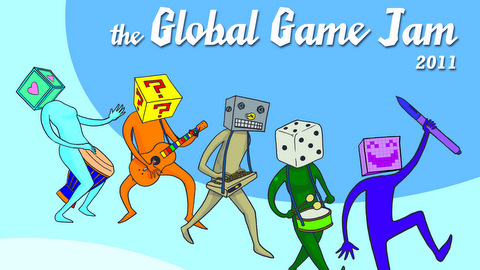In the last decade Brazil’s economy has been flourishing, spawning all kinds of new commercial and creative initiatives. Brazil has a fond love for gaming and a growing industry to match it. We had a talk with the cheerful Martin Fabichak, Technical Director of Insolita Studios in São Paulo, to find out more about him, his company and what makes the Brazilian game industry unique.
After Fabichak graduated in Applied Math with a specialization in Programming, he quickly realized that his true passion was game development, leading him to create flash games. In 2008 he joined Insolita where he recently became Technical Director and a partner of the company six months ago.
Size matters
One of the characteristics of being a young company in an upcoming industry is that you get to create all sorts of games. Insolita Studios has a diverse repertoire, from serious games to teach management skills, to comedic platformers featuring cavemen and devils.
While they were making three serious games to encourage entrepreneurship in collaboration with professional experts, they decided to make something less serious, yet important on the side: CaveDays. “This cool platforming game allowed the company get noticed in the Brazilian industry, especially after winning the Jogos BR contest for Best Game, a contest organized by the Brazilian government to stimulate Brazilian game design.” Fabichak explains.
The award was the first step to start more, and bigger, projects. Fabichak likes to describe them in superlatives: “Afterwards we made a huge serious game, LudoPark. Pretty much one of the biggest serious games ever made because it’s a real-time multiplayer management game where 40 players compete to manage their business.” Besides this “huge” game, Insolita Studios joined up with the independent Brazilian game developer Abdução to make something “mini” that turned out quite big.
Freekscape from Brazil
The two companies joined forces as Kidguru Studios to work on the first Sony-licensed game in Brazil for the PSP Minis platform, Freekscape. “We’re the only licensees for Sony.” Fabichak explains. “There is no one with a PS3 license here. It’s really hard to get that in Latin America. Being able to get Freekscape on the PSP Mini platform was a unique opportunity for us.”
Developing Freekscape took Insolita’s international relationships to another level in many different ways. “We developed a prototype with 3 levels and took it to GDC in 2009. There we got in touch with the publisher Creat from the US that gave us the opportunity to work with Sony that was looking for games for its new PSP Minis platform that had yet to be announced.” Fabichak recounts.
Compared to other PSP Minis games, Freekscape was a big mini. “Out of 40 levels we had in this project, only 15 remained in the game,” Fabichak admits. “We did not know that Minis would mostly be smaller-sized casual games. Most games come down to 1 or 2 hours of playtime, with a lot of replay value, of course,” Fabichak explains. “But Freekscape was disproportionately bigger with about 8 hours of gameplay. We believed and hoped PSP Minis was going to be a platform for small studios with big ideas.” Was Freekscape too big to be a Mini? “Sony was happy with the way Freekscape fit into their original idea of the type of games they wanted to offer on PSP Minis.”
Lessons from the little devil
Fabichak is happy with having an odd-one-out on a platform that has tough competition with delivering bite-sized portable games. He is proud of the game it turned out to be, but especially the lessons and relationships they gained through it. “We learned a lot from Freekscape. Especially in maintaining a relationship with an international publisher and a big player like Sony.” Fabichak says. “One of the things we struggled with was developing for Minis at such an early stage. Developing Freekscape before PSP Minis had even been announced, brought some difficulties, specifically nearing the end of our development cycle because the requirements and features for PSP Minis changed from one week to the other.”
Fabichak does not take his hardships for granted, however. “During this time, we had a great relationship with Vicious Cycle Software, who made the Vicious Engine we worked with. They helped us with a lot of issues. They even made some tweaks to the engine to help us out with some of the issues,” Fabichak recounts. “But when it came to one of the specific requirements from Sony, I spent about a month in the engine’s source code trying to solve it. That was really hard, especially since it came out of the blue, nearing the end of development.”
“Despite these problems, we had great help from Sony.” Fabichak admits. It also gave them more confidence to step things up. “Through this project we now talk to others on a whole other level. Now we can approach publishers and companies like Sony with more ease. You can’t reach this level as a company without earning your stripes with a previous project. Now we have the credentials to talk to them and prove we can deliver on what we propose, and our partners know that. We feel like we’re on another level now.” Fabichak says proudly.
The second part of Fabichak’s interview will be published next week, including his views on the Brazilian game industry, Insolita’s current projects, and his effort to inform upcoming talents about the real world of game development in Brazil through his podcast, Doublejump.












